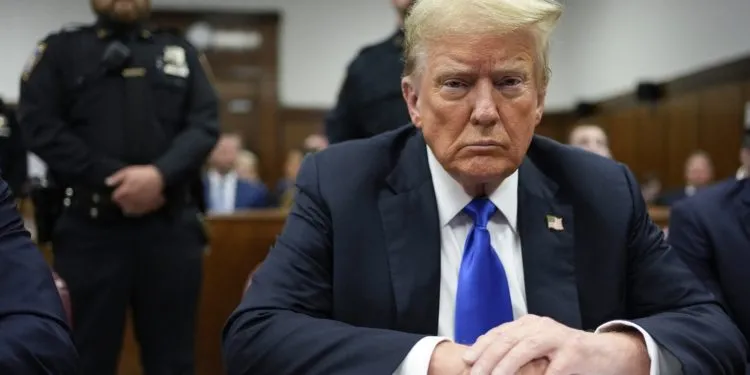United States President-elect Donald Trump outlined ambitious plans for his return to office in a wide-ranging interview with NBC’s Meet the Press. The Republican leader pledged to issue numerous executive orders on immigration, energy, and the economy starting his first day in office on January 20, including controversial measures to end birthright citizenship and grant pardons to individuals convicted in connection with the 2021 Capitol riot.
Capitol Riot Pardons: “Living in Hell”
Trump expressed strong support for those imprisoned for their roles in the Capitol riot, calling their treatment unfair and hinting at broad clemency. “These people are living in hell,” he said. When pressed about issuing pardons, he responded emphatically, “We’ll look at individual cases. But I’ll act very quickly. First day.”
Critics have condemned such remarks as undermining the rule of law, while supporters see them as a step toward addressing perceived injustices in the judicial process. Former Congresswoman Liz Cheney, a prominent critic of Trump, called his comments “a continuation of his attack on the rule of law.”
Birthright Citizenship in Crosshairs
Trump reiterated his intent to end birthright citizenship, a policy enshrined in the 14th Amendment of the U.S. Constitution. “We’re going to have to get a change,” he told NBC. “We have to end it.”
The 14th Amendment, ratified in 1868, guarantees citizenship to anyone born on U.S. soil. Legal experts have widely rejected Trump’s claim that such a change could be achieved through executive action. Former Republican House Speaker Paul Ryan previously stated, “You cannot end birthright citizenship with an executive order.” Achieving this goal would likely require a constitutional amendment—a politically and procedurally daunting process.
Immigration Reform: A Balancing Act
Trump expressed willingness to collaborate with Democrats to craft a solution for Dreamers, undocumented immigrants brought to the U.S. as children under the Obama-era Deferred Action for Childhood Arrivals (DACA) program. “I’ll work with the Democrats on a plan,” he said, acknowledging that many Dreamers have established successful lives in the U.S.
However, he simultaneously doubled down on deporting undocumented immigrants, even if it means expelling U.S.-born children alongside their parents. “I don’t want to break up families,” Trump explained, adding, “The only way you don’t break up the family is you keep them together and you have to send them all back.”
Foreign Policy and Domestic Priorities
Donald Trump hinted at potential shifts in U.S. foreign aid and alliances, signalling reduced aid to Ukraine and emphasising that NATO members must “pay their bills” to maintain American support. He also promised not to seek restrictions on abortion pills but declined to guarantee that stance definitively.
On the economy, Trump acknowledged that his proposed tariffs on imports could raise consumer prices but insisted the long-term benefits would outweigh short-term costs. “I can’t guarantee anything,” he admitted. “I can’t guarantee tomorrow.”
Mixed Signals on Political Retaliation
While Trump emphasised that his focus would be on making the country successful, he did not rule out pursuing legal action against political adversaries, including members of the House committee that investigated him. “If they’re crooked, if they do something wrong, if they break the law, probably,” he said, leaving the door open to potential investigations.
Legal and Political Hurdles
Trump’s sweeping promises face significant legal and political challenges. Changes to birthright citizenship would likely trigger constitutional battles, while achieving bipartisan immigration reform in a divided Congress remains uncertain. Additionally, his comments about Capitol riot pardons have drawn sharp criticism from Democrats and some Republicans.
Despite these challenges, Donald Trump appeared resolute in his plans. “Retaliation will come through success,” he said.



